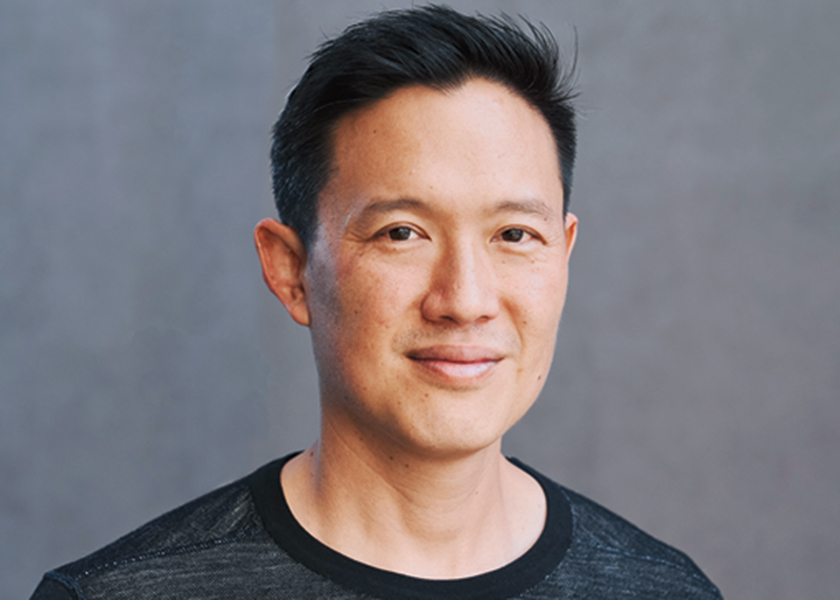Pushing the Boundaries of Global Finance
Avery Ching (’02, PhD ’07) is helping build the future of finance. As cofounder and CEO of Aptos Labs, he’s developing a Layer-1 blockchain to enhance scalability, security, and transaction speed while providing universal and centralized access to decentralized assets for developers.
“We’re on the cutting edge of what can be done in this space, and every time we push a boundary, it enables some new use case that wasn’t possible before,” Ching says. “It’s exciting—we get to lead the future.”
Under his leadership as chief technology officer and now CEO, Aptos has formed partnerships with Google, Microsoft, Mastercard, BlackRock, and Franklin Templeton. Offering high throughput and low latency to support mass-market applications, Aptos holds the top four records for daily blockchain transactions.
“We’re on the verge of getting into Web 3.0, where you’ll see new companies start to emerge and build out billion-dollar-plus businesses,” Ching says. “Being on the cusp of that and driving innovation is something that gets me super pumped every day.”

Carving a path
Ching’s interest in computer engineering began at Northwestern. Unsure of what he wanted to study as an undergraduate, Ching appreciated Northwestern’s flexibility in letting students explore different subjects. “It’s a very open environment to pursue your individual interests,” he says. “That’s something I really valued.”
After taking an engineering course on circuit design, Ching was hooked. He enjoyed the hands-on approach to technology and found his niche in computer engineering, where he met his mentor and adviser Alok Choudhary, Harold Washington Professor of Electrical and Computer Engineering and Computer Science. Ching describes Choudhary as a “huge influence” on his decision to pursue a PhD in the subject. “He was instrumental in helping me get excited about high-performance computing,” Ching says.
After earning his PhD, Ching worked at Yahoo for four years, focused on web search and Apache Giraph, an open-source, iterative graph processing system built for high scalability. Leaders at Facebook (now known as Meta) noticed Ching’s work and in 2011 asked him to join the company; he did, and spent more than a decade there.
“When I started with Facebook’s data infrastructure team, we were a small team of 20 to 30 people,” he says. “When I left, we were about 200. That was a really transformative journey to grow my career but also grow myself individually.”
Ching served as Meta’s overall tech lead for batch processing teams, including those responsible for Apache Spark, Apache Giraph, Facebook Hive/Hadoop (Corona), distributed scheduling, and the unified programming model for pipelines. These technologies provide underlying analytics for all Meta products, scale to hundreds of thousands of machines, and enable experiences for billions of consumers.
Ching’s focus transitioned to blockchain when fellow Northwestern alumnus Hui Ding (MS ’06, PhD ’09) convinced him to work on Meta’s Libra and Diem projects to support payments around the world on a decentralized blockchain. Ching led Meta’s crypto platform team focused on blockchain technology. “It was a really fantastic experience to be like a startup within this large company,” he says.
Taking initiative
That experience inspired Ching and the founding team to come together and announce Aptos Labs in 2022. The entrepreneurial venture leverages the open-source technology and programming language developed for Diem, a project Meta discontinued. The platform raised more than $400 million in venture capital from investors such as Andreessen Horowitz (a16z), Coinbase Ventures, and PayPal.
“We started looking for funding with the blessing of Facebook,” Ching says. “It’s been a great journey with investors who share the vision of a decentralized internet and want to put money behind it to help us succeed.”
Ching is passionate about open finance, which gives anyone the ability to access financial infrastructure and assets around the world at any time. It also allows developers to integrate financial products without requiring permission.
“It’s transformative when it comes to impacting society positively now that we can have money movement happening for anybody in the world in under a second at a hundredth of a cent,” he says. “That’s an incredible new technology that can change this world and open up economic borders.”
Ching credits Choudhary’s guidance with helping him develop the sense of responsibility and independence that fuels his work.
“I learned to be proactive about what do I want to solve, what challenges am I trying to address, and what’s the best solution,” he says. “Those lessons translate well into taking initiative, whether you’re at a company or starting your own business. Always taking initiative, sharpening your ideas, and then turning them into practice is something I got out of my PhD.”
